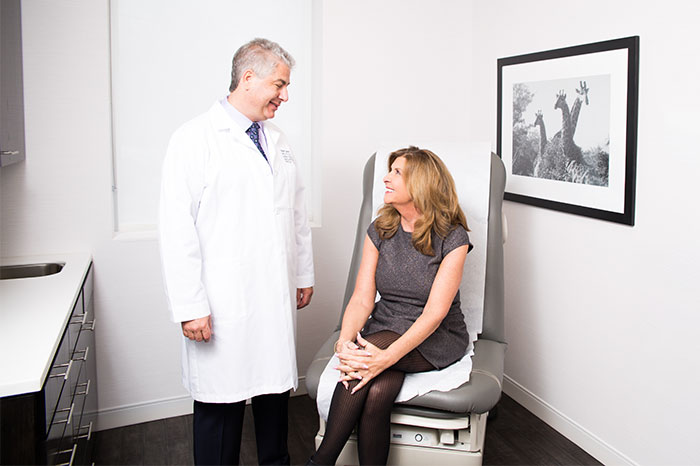What to Expect During & After your Procedure?
Gastric sleeve is performed with patients under anesthesia. With the aforementioned SILS technique, a single small entry point is created through your belly button. Utilizing stomach staples, the majority of the stomach is removed and the rest is sealed off. Upon completion of the procedure, the incision itself is closed with sutures.
The procedure itself can be completed in two hours or less, and in most cases, you’ll only need to spend one night in the hospital. Upon discharge, you’ll be provided with care instructions. Most people take a week or two off from work, however, with gastric sleeve, recovery is a much quicker road than with many other procedures.
What is the cost of Gastric Sleeve Surgery in New York?
How much your procedure costs depends on several factors, including whether or not your insurance covers your surgery. Today, most companies do provide coverage for obese individuals to receive bariatric surgery, although it’s important to understand their specific policies.
We’ll work with you and help guide you through this process. If you are unable to receive insurance coverage, we also provide a range of financing options to help make the cost of your procedure as manageable as possible. Above all else, we want to be able to improve the health and wellbeing of our patients and make our services available to many people as possible.
How Can This Procedure Change Your Life Starting Today?
You can and will see fantastic results with laparoscopic sleeve gastrectomy surgery performed by New York’s leading team, the Tristate New York Bariatric Group.
Call our office today at 800.633.8446 and we’ll be happy to provide you with the information you need to get started, and schedule an initial consultation appointment.
What are the Procedure Risks?
Gastric sleeve is a newer procedure than its counterparts, such as the aforementioned gastric bypass. That means that long-term studies are not available to the same degree as they are for other procedures. Yet, everything which has been seen with sleeve gastrectomy is that serious complications are quite rare. A few risks to consider include:
- Stomach leaking along the staple line
- Internal bleeding
- Abdominal wall abscesses
- All typical risks of complication when undergoing anesthesia
The most common risk is actually the development of acid reflux disease, or gastroesophageal reflux. Luckily, with the proper guidelines for managing your diet and lifestyle, this can typically be treated if it does occur.
Is there a Post Gastric Sleeve Surgery Diet?
There are several phases to any post-bariatric surgery diet plan. For two weeks, you’ll be restricted to liquids, before incorporating pureed and soft foods into your diet for the next weeks. After that, you’ll be able to begin incorporating additional foods, as well as small portions of meat and fish. After these three phases, you’ll be able to adjust with an ongoing nutritional plan which focuses both on portion size and meal frequency.
We provide all of our patients with detailed nutritional information and guidance so they are fully prepared for each phase. Through our online store, you’ll also be able to directly purchase the safe and healthy products we recommend.
At Tristate New York Bariatric Group, not only do we provide you with the nutritional guidance and information you need to adjust to your new diet, we also offer a comprehensive bariatric support program. This includes post-op appointments, access to mentors and support groups, and much more.



